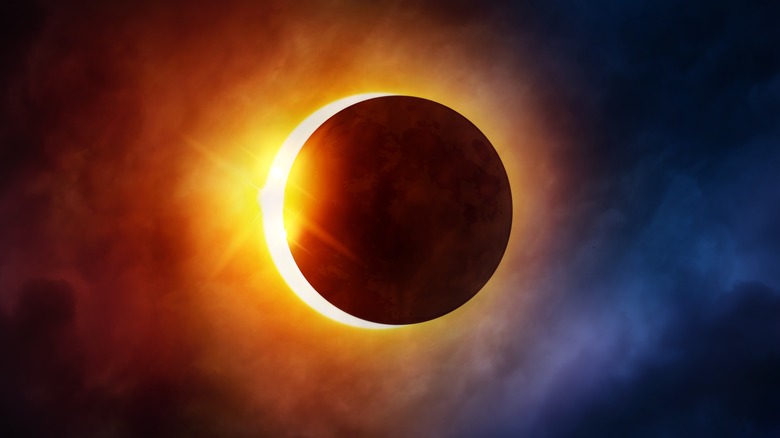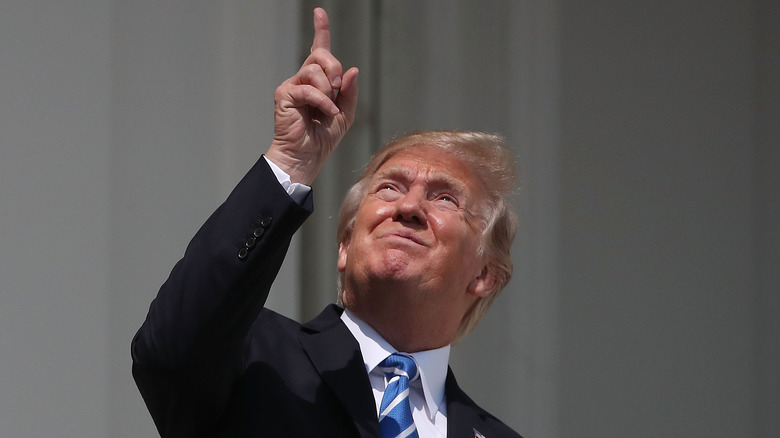Here's Why You Shouldn't Look Directly At A Solar Eclipse
Solar eclipses don't happen often, so when it happens in April this year, people will enjoy taking a look. Of course, looking directly at the sun at any time is dangerous, but it's especially so during an eclipse. Whether partial or total, solar eclipses can cause permanent eye damage and even vision loss, which may seem counterintuitive, seeing as the sun is partially obscured. Stare at the sun on any given day; its brightness will compel you to look away before too much damage is done.
It's different during an eclipse because you can stare at the sun without this reflexive response, lulling viewers into a false sense of security. Some people see the sunlight diminish and look up, thinking it's safe, but this is about the worst thing you can do. When the Moon passes before the sun, it's called totality, and this is the only time it's safe to look upon without safety glasses, but only for a few minutes.
Because we don't have pain sensitivity in our retinas, looking at an eclipse for even a few moments can unknowingly cause retinal burns, which most people don't notice for several hours. The danger from an eclipse stems from the period when the sun is only partially obscured. Looking at the sun at any time during the Moon's transit is incredibly dangerous and shouldn't be done without special protective glasses. Fortunately, these are easy to find (but be careful of fake ones) leading up to an eclipse and relatively inexpensive, so if you plan to watch an eclipse, these are vital.
Unprotected eclipse viewers can experience temporary or permanent vision loss
Optometrists and the American Optometric Association come out of the woodwork prior to an eclipse, offering warnings and advice for viewing the event. It's entirely safe to look directly at the sun with special glasses or other devices. Eclipse glasses must meet ISO 12312-2 international standards, but there are other options should you have difficulty finding these, since they become scarce the closer you get to an eclipse. A pinhole projector is another safe means of witnessing an eclipse, and institutions like NASA have posted instructions on how to craft them.
Should you avoid all of the advice and gaze directly at the sun during an eclipse, your vision will suffer temporary or permanent damage. You'll be able to see the eclipse by looking at the sun without glasses for a good ten minutes without realizing you've done any harm. Throughout that time, photoreceptor cells burn off your retina, damaging the part of your eye that sends images to your brain. You won't feel this in any way, at least not immediately. The resulting scarring is permanent and incurable but doesn't always lead to blindness.
That said, you can expect to diminish or lose some of your vision as a result, and there's no way to cure the damage. For those who think it's safe to look at the eclipse through something like a telescope or camera, there's some truth to that. You'll need a special solar filter, or the lens will magnify the light, making exposure even more damaging. Ultimately, it's perfectly safe to watch an eclipse, so you shouldn't miss out when one comes around as long as you take the necessary precautions to protect your eyes.

